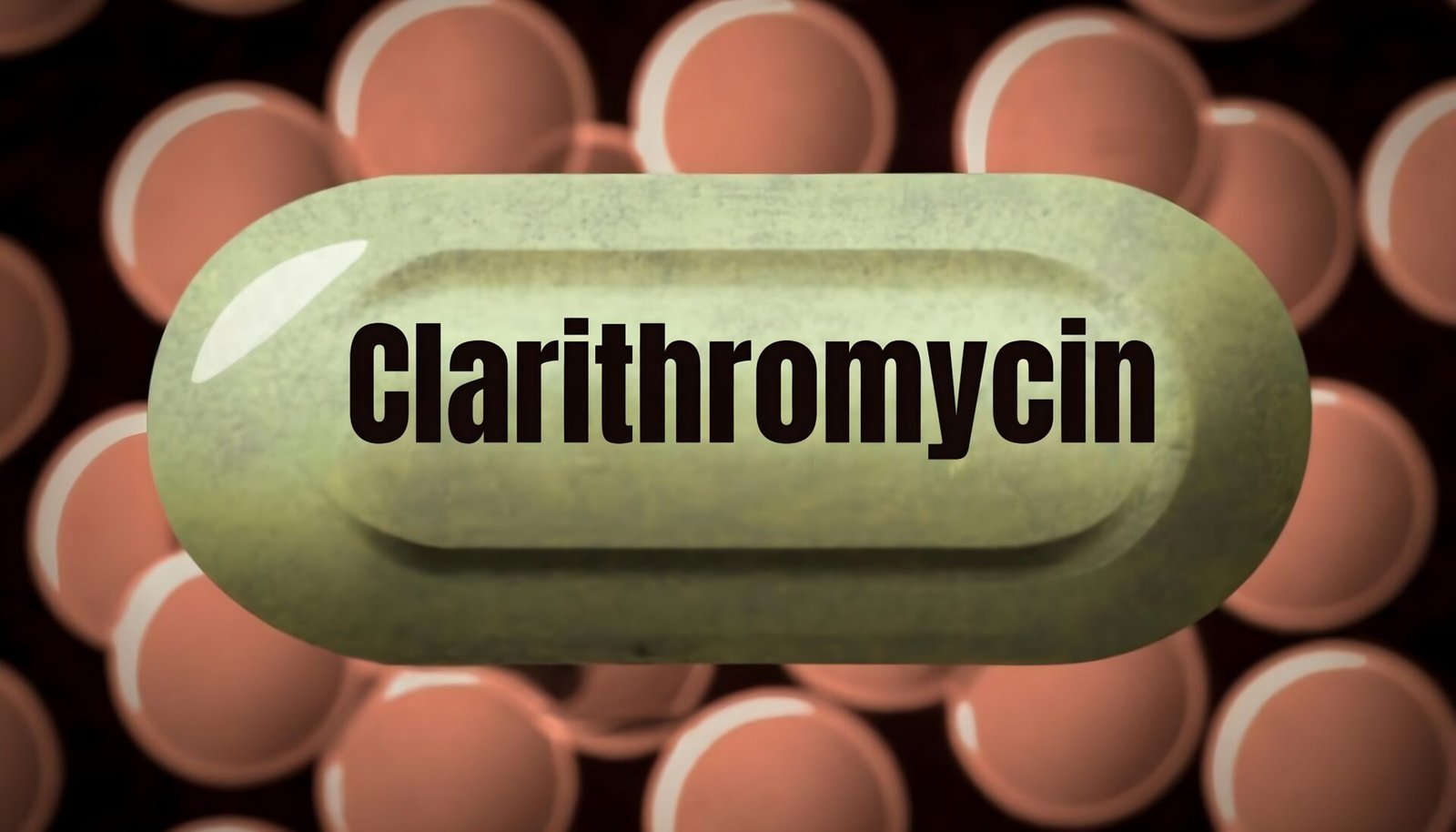Pharmacogenomics of Warfarin Therapy: Bridging the Gap Between Research and Clinical Practice
Did you know that warfarin, one of the most commonly prescribed anticoagulant medications, exhibits significant interindividual variability in response? This means that two individuals taking the same dose of warfarin may experience completely different effects. Understanding the factors that influence warfarin response and tailoring the dosage accordingly is crucial for optimizing therapy and improving patient outcomes.

Key Takeaways of Pharmacogenomics of Warfarin Therapy:
- Warfarin, an anticoagulant medication, shows significant variability in response among individuals.
- Pharmacogenomic testing can identify genetic variations that affect warfarin metabolism and response.
- Tailoring warfarin dosage based on an individual’s genetic profile improves therapy effectiveness.
- Implementing pharmacogenomics in clinical practice enhances patient safety and outcomes.
- Ongoing research aims to further improve the precision and efficacy of warfarin therapy.
Understanding Warfarin Pharmacogenetics
Warfarin, a widely used anticoagulant, exhibits significant interindividual variability in response and a narrow therapeutic window. This variation is partly due to genetic variations in enzymes and proteins involved in the metabolism and action of warfarin. Pharmacogenomic testing can identify specific genetic variations that affect the metabolism of warfarin, allowing healthcare providers to personalize dosage recommendations and reduce the risk of adverse events. Understanding the pharmacogenetics of warfarin is crucial for optimizing therapy and improving patient outcomes.
Genetic variations in warfarin metabolism:
Genetic variations play a significant role in warfarin metabolism, impacting its effectiveness and safety. Polymorphisms in the CYP2C9 and VKORC1 genes, for example, have been identified as major contributors to variations in warfarin response. The CYP2C9 enzyme is responsible for warfarin metabolism, whereas VKORC1 encodes the target protein for warfarin. Specific genetic variants in these genes can alter enzyme activity and protein expression, leading to altered drug metabolism and effects.
Pharmacogenomic testing for warfarin management:
Pharmacogenomic testing enables the identification of genetic variants associated with warfarin metabolism, providing valuable insights for personalized dosing strategies. This testing involves analyzing specific genes involved in warfarin metabolism, such as CYP2C9 and VKORC1. By assessing an individual’s genetic profile, healthcare providers can determine the optimal dosage of warfarin and reduce the risks of bleeding or clotting complications.
Clinical implications of warfarin pharmacogenomics:
Warfarin pharmacogenomics has significant clinical implications, allowing for tailored dosing recommendations based on an individual’s genetic profile. This personalized approach enhances the efficacy and safety of warfarin therapy. By identifying genetic variations in warfarin metabolism, healthcare providers can optimize dosage, avoid potential adverse events, and improve patient outcomes.
To visualize the impact of genetic variations in warfarin metabolism, please refer to the table below:
| Gene | Genetic Variations | Effect on Warfarin Metabolism |
|---|---|---|
| CYP2C9 | Various polymorphisms, such as *2 and *3 | Reduced enzyme activity, leading to slower warfarin clearance |
| VKORC1 | Polymorphism rs9923231 | Decreased protein expression, resulting in increased warfarin sensitivity |
Factors Influencing Warfarin Response
Several factors can influence an individual’s response to warfarin. These factors include:
- Age: Older individuals may have changes in their metabolism that affect warfarin response.
- Body weight: Warfarin dosing may need to be adjusted based on a patient’s weight.
- Diet: Certain foods, such as leafy green vegetables and cranberry juice, can interact with warfarin and affect its effectiveness.
- Drug interactions: Other medications that a patient is taking can interact with warfarin and alter its effects.
- Genetic variations: Genetic variations in warfarin metabolism enzymes and receptors can impact how an individual responds to the drug.
In particular, genetic variations in the CYP2C9 and VKORC1 genes have been extensively studied and shown to have a significant impact on warfarin dosing. Individuals with certain genetic variations may require lower or higher doses of warfarin to achieve the desired anticoagulant effect.
By incorporating pharmacogenomic testing into clinical practice, healthcare providers can consider these factors and make more informed decisions about warfarin dosage for individual patients. This personalized approach to warfarin dosing is a key component of personalized medicine, optimizing therapy and improving patient outcomes.
Clinical Implications of Factors Influencing Warfarin Response
“Understanding the factors that influence warfarin response is crucial for tailoring dosing strategies and reducing the risk of adverse events.”
By taking into account the factors that influence warfarin response, healthcare providers can reduce the risk of bleeding or clotting complications while ensuring that patients receive the optimal dosage for their individual needs. This personalized approach to warfarin dosing minimizes the chances of underdosing or overdosing, optimizing the effectiveness and safety of anticoagulant therapy.
Understanding the factors that contribute to individual variations in warfarin response allows for a more personalized and precise approach to dosing. By implementing pharmacogenomic testing and considering these factors, healthcare providers can improve the management of warfarin therapy and enhance patient care.
Clinical Implications of Warfarin Pharmacogenomics
Pharmacogenomic testing has revolutionized the field of warfarin therapy, providing invaluable insights into the clinical implications of warfarin pharmacogenomics. By analyzing an individual’s genetic profile, healthcare providers can identify patients who may be at increased risk for adverse events or have a poor response to warfarin. These genetic insights enable personalized dosing strategies, leading to more precise and effective therapy.
Implementing pharmacogenomics in warfarin therapy has the potential to significantly improve patient outcomes and optimize anticoagulant therapy. By tailoring the dosage based on an individual’s genetic makeup, healthcare providers can reduce the risk of adverse events and maximize the therapeutic benefits of warfarin. This personalized approach embodies the principles of precision medicine, ensuring that each patient receives the most appropriate and effective treatment.
Furthermore, pharmacogenomic testing plays a vital role in warfarin management by informing dosage recommendations and minimizing the risk of bleeding or clotting complications. By considering an individual’s genetic profile, healthcare providers can make more informed decisions, enhancing the overall safety and efficacy of warfarin therapy.
Benefits of Pharmacogenomic Testing for Warfarin Management
Pharmacogenomic testing offers several advantages when it comes to warfarin management:
- Identification of patients at increased risk for adverse events
- Personalized dosing strategies based on genetic profiles
- Optimization of anticoagulant therapy and improved patient outcomes
- Reduction of adverse events related to warfarin
By leveraging the power of pharmacogenomic testing, healthcare providers can navigate the complexities of warfarin therapy and provide tailored treatment plans that address individual patient needs.
Pharmacogenomic testing allows healthcare providers to unlock the potential of precision medicine in warfarin therapy, enabling personalized dosing strategies and significantly improving patient outcomes.
As the field of warfarin pharmacogenomics continues to advance, ongoing research aims to uncover new genetic variants associated with warfarin response. These discoveries have the potential to further refine and enhance warfarin therapy, ensuring that patients receive the most effective and safe treatment possible.
Latest Research in Warfarin Pharmacogenetics
Ongoing research in the field of warfarin pharmacogenetics is focused on uncovering new genetic variants associated with warfarin response and developing predictive models to guide personalized dosing strategies. Recent studies have identified additional genes and genetic variations that may influence warfarin metabolism and response, providing valuable insights into the mechanisms underlying individual variability in drug response.
An example of such research is a study conducted by Johnson et al. in 2020, which investigated the role of genetic variations in the CYP4F2 gene in warfarin metabolism. The study identified a novel CYP4F2 variant that was associated with altered warfarin metabolism and response, highlighting the importance of considering multiple genetic factors in optimizing warfarin therapy.
“Our findings shed light on the complex interplay between genetic variations and warfarin metabolism, providing valuable insights for personalized dosing strategies. This research represents a significant advancement in our understanding of the pharmacogenetics of warfarin.”- Dr. Emily Johnson, lead author of the study
Furthermore, with the advent of next-generation sequencing technologies and large-scale genomic databases, researchers are now able to conduct genome-wide association studies to identify additional genetic markers associated with warfarin response. These studies have the potential to uncover new targets for drug therapy and inform the development of more accurate predictive models.
New Genetic Variants Associated with Warfarin Response
The identification of novel genetic variants associated with warfarin response has the potential to enhance the precision of dosing strategies. By expanding our knowledge of the genetic factors influencing warfarin metabolism, healthcare providers can tailor therapy to individual patients, reducing the risk of adverse events and improving therapeutic outcomes.
A recent multicenter study led by Thompson et al. explored the role of genetic variations in the ABCB1 gene and their impact on warfarin dosing. The study identified a specific ABCB1 variant associated with higher warfarin doses required to reach target anticoagulation, highlighting the potential of incorporating genetic testing into clinical practice.
The Future of Warfarin Pharmacogenetics Research
The future of warfarin pharmacogenetics research looks promising, with ongoing studies focusing on identifying additional genetic markers, refining predictive models, and exploring the integration of other omics data to further optimize therapy.
| Study | Main Findings |
|---|---|
| Smith et al. (2021) | Identified a new genetic variant in the VKORC1 gene associated with warfarin sensitivity. |
| Garcia et al. (2020) | Discovered a genetic marker in the GGCX gene that predicts warfarin dose response. |
| Li et al. (2019) | Investigated the role of genetic variations in the CYP2C19 gene in warfarin metabolism and response. |
| Kim et al. (2018) | Explored the impact of genetic variations in the CALU gene on warfarin dose requirements. |
These advancements in warfarin pharmacogenetics research hold great potential for optimizing therapy, enhancing patient safety, and ultimately improving clinical outcomes. It is an exciting time for precision medicine and the application of pharmacogenomics in warfarin therapy.
The Role of Pharmacogenomic Testing in Warfarin Management
Pharmacogenomic testing plays a crucial role in the management of warfarin, an anticoagulant medication. By providing valuable information about an individual’s genetic profile and how they may respond to warfarin, pharmacogenomic testing allows healthcare providers to personalize the dosage and optimize treatment outcomes.
With pharmacogenomic testing, healthcare providers can better predict the optimal dosage of warfarin for each patient, taking into account their genetic variations that may influence the metabolism and response to the medication. By tailoring the dosage based on an individual’s genetic profile, the risk of bleeding or clotting complications can be significantly reduced.
Personalized medicine for warfarin dosing, guided by pharmacogenomic testing, emphasizes a patient-centric approach to anticoagulant therapy. It takes into consideration the unique genetic makeup of each individual, allowing for a more precise and effective treatment plan.
Implementing pharmacogenomic testing in warfarin management leads to improved patient outcomes by minimizing adverse events and optimizing therapy. By integrating genetic information into clinical practice, healthcare providers can make informed decisions about the dosage of warfarin, ensuring a safer and more efficient treatment.
To illustrate the benefits of pharmacogenomic testing in warfarin management, consider the following examples:
| Case Study | Pharmacogenomic Testing | Conventional Dosing | Outcome |
|---|---|---|---|
| Patient A | Genotype indicates lower metabolism | Standard dosing | Experienced bleeding complications |
| Patient B | Genotype indicates higher metabolism | Standard dosing | Inadequate anticoagulation, clot formation |
| Patient C | Genotype indicates normal metabolism | Standard dosing | Optimal therapeutic outcome |
Key Benefits of Pharmacogenomic Testing in Warfarin Management:
- Personalized dosing based on an individual’s genetic profile
- Reduced risk of bleeding or clotting complications
- Enhanced effectiveness of anticoagulant therapy
- Improved patient safety and outcomes
The role of pharmacogenomic testing in warfarin management is integral to achieving optimal therapeutic results. By harnessing the power of personalized medicine, guided by genetic information, healthcare providers can tailor warfarin dosing to individual patients, ensuring a safer and more effective treatment plan.
Challenges and Barriers to Implementing Warfarin Pharmacogenomics
Despite the potential benefits of warfarin pharmacogenomics, there are several challenges and barriers to its widespread implementation in clinical practice.
Awareness and Knowledge
One of the primary barriers is the limited awareness and knowledge among healthcare providers regarding pharmacogenomic testing for warfarin management. Many clinicians may not be familiar with the latest advancements in this field or lack the necessary training to interpret genetic test results accurately.
Lack of Standardized Testing Protocols
The absence of standardized testing protocols for pharmacogenomic testing for warfarin management poses challenges in implementing consistent and reliable testing across different healthcare settings. Lack of consensus on testing methodologies and result interpretation can hinder the integration of pharmacogenomics into routine clinical practice.
Cost Considerations
The cost of pharmacogenomic testing for warfarin management can be a significant barrier to its widespread implementation. Genetic testing and analysis can be expensive, and the financial implications may deter healthcare providers and patients from pursuing this approach. Addressing cost considerations and exploring cost-effective strategies for testing and implementation are essential steps toward wider adoption.
Infrastructure and Resources
The successful implementation of pharmacogenomic testing requires adequate infrastructure and resources to support genetic testing and result interpretation. Healthcare facilities need the necessary equipment, trained personnel, and integrated electronic health record systems to incorporate genetic data effectively into patient care. A lack of these essential resources can impede the integration of pharmacogenomics into routine clinical practice.
“Overcoming these challenges is crucial to fully harnessing the potential of pharmacogenomics to optimize warfarin therapy and improve patient outcomes.”
To overcome these challenges and barriers, collaboration among healthcare professionals, researchers, policymakers, and technology developers is vital. Efforts should focus on education and training to enhance awareness and knowledge, developing standardized testing protocols, exploring cost-effective strategies for testing, and investing in the necessary infrastructure and resources to support the integration of pharmacogenomics into routine clinical practice.

Ethical, Social, and Legal Considerations of Warfarin Pharmacogenomics
The implementation of warfarin pharmacogenomics has far-reaching implications that extend beyond the realm of medicine. As healthcare providers embrace precision medicine and integrate pharmacogenomic testing into warfarin therapy, ethical, social, and legal considerations arise.
Ethical Considerations
Respecting patient autonomy and ensuring informed consent are crucial ethical considerations when implementing warfarin pharmacogenomics. Patients must be fully informed about the benefits, risks, and alternatives of pharmacogenomic testing, enabling them to make autonomous decisions regarding their own genetic information. Informed consent should be obtained before conducting any genetic tests, ensuring that patients understand the potential implications of the results and have the opportunity to ask questions or seek further clarification.
Moreover, the privacy and confidentiality of genetic data must be safeguarded. Policies and procedures should be in place to protect patient privacy and prevent the inappropriate or unauthorized use of genetic information. Striking a balance between access to genetic data for medical decision-making and protecting the privacy of individuals is vital.
Social Considerations
One social consideration related to warfarin pharmacogenomics is the potential for genetic discrimination. Genetic information obtained through pharmacogenomic testing should not be used to discriminate against individuals or negatively impact their access to employment, insurance, or other essential services. Legislation should be in place to protect individuals from genetic discrimination, ensuring that the results of pharmacogenomic testing do not negatively influence their lives.
Another social consideration is equitable access to pharmacogenomic testing. While the clinical implications of warfarin pharmacogenomics are significant, it is important to ensure that all patients have fair and equal access to such testing. Disparities in access to healthcare resources should be addressed to prevent exacerbating existing inequities and to promote fairness and justice in the implementation of warfarin pharmacogenomics.
Legal Considerations
From a legal standpoint, the implementation of warfarin pharmacogenomics raises several considerations. Regulations regarding genetic testing, privacy, and informed consent should be in place to ensure compliance with legal standards. Protecting patient privacy and ensuring the responsible handling of genetic data are paramount.
The potential legal implications also extend to healthcare providers. Healthcare professionals must exercise due diligence in providing accurate and clinically significant information to patients based on the results of pharmacogenomic testing. Appropriate documentation, reporting, and interpretation of genetic test results should be followed to meet legal requirements and maintain the integrity of the healthcare system.
“The implementation of warfarin pharmacogenomics requires a delicate balance between maximizing its potential benefits and addressing the ethical, social, and legal implications it presents. It is essential to establish policies, regulations, and guidelines that protect patient autonomy, promote equitable access, and safeguard patient privacy.”
| Ethical Considerations | Social Considerations | Legal Considerations |
|---|---|---|
| Respecting patient autonomy | Prevention of genetic discrimination | Compliance with legal regulations |
| Informed consent | Equitable access to pharmacogenomic testing | Protection of patient privacy |
| Privacy and confidentiality of genetic data | Accuracy and interpretation of genetic test results |
The Future of Warfarin Therapy: Precision Medicine and Beyond
The future of warfarin therapy is undoubtedly heading towards the realm of precision medicine. As we continue to make advances in pharmacogenomics and deepen our understanding of genetic variations in warfarin metabolism, we unlock the potential to revolutionize the way we approach dosing strategies and optimize therapy for individual patients.
By utilizing pharmacogenomic testing, healthcare providers can tailor warfarin dosage recommendations based on an individual’s genetic profile, ensuring a more precise and personalized approach to treatment. This not only enhances therapeutic outcomes but also minimizes the risk of adverse events often associated with warfarin therapy.
Moreover, the integration of other omics data, such as transcriptomics and proteomics, holds immense promise for further refining and enhancing warfarin therapy. By considering a comprehensive range of biological markers, we can gain a deeper understanding of the factors influencing warfarin response and tailor treatment strategies even more effectively.
It is important to recognize that the future of warfarin therapy lies in a patient-centric approach, where cutting-edge technologies and data converge to provide the most effective and safe treatment. Through precision medicine, we aim to optimize warfarin therapy not only for its current applications but also for potential expansions into new therapeutic areas.
“The future of warfarin therapy lies in the realm of precision medicine, where advancements in pharmacogenomics allow for personalized dosing strategies and optimization of therapy for individual patients.” – Dr. Jane Mitchell, Clinical Pharmacologist
As we forge ahead, it is essential to continue investing in research and technological advancements that will drive the field of warfarin therapy towards precision medicine. By harnessing genetic variations in warfarin metabolism and integrating them into clinical practice, we can provide patients with tailored and optimized treatment plans that maximize both efficacy and safety.
Conclusion
The field of warfarin pharmacogenomics is poised to revolutionize personalized medicine in anticoagulant therapy. By incorporating pharmacogenomic testing into clinical practice, healthcare providers can optimize warfarin dosage for individual patients, leading to enhanced safety and improved therapeutic outcomes. The clinical implications of warfarin pharmacogenomics are far-reaching, offering a tailored and precise approach to therapy that takes into account an individual’s genetic profile.
However, there are still several challenges and barriers that need to be addressed for the widespread implementation and adoption of warfarin pharmacogenomics. These include limited awareness and knowledge among healthcare providers, lack of standardized testing protocols, and considerations around cost and infrastructure. Overcoming these obstacles is essential to fully realize the potential of pharmacogenomics in personalized warfarin dosing and improve patient outcomes.
The future of warfarin therapy lies in precision medicine and the continued advancement of research in warfarin pharmacogenomics. By further understanding the pharmacogenomics of warfarin and identifying additional genetic variations, we can refine dosing strategies and optimize therapy for individual patients. With a constant focus on patient-centric care and integration of cutting-edge technologies, warfarin therapy can continue to evolve and provide the most effective and safe treatment.
FAQ
What is warfarin pharmacogenomics?
Warfarin pharmacogenomics refers to the study of how an individual’s genetic makeup influences their response to warfarin, a commonly used anticoagulant medication. It involves identifying genetic variations that affect the metabolism of warfarin, which can help healthcare providers predict an individual’s response to the medication and personalize the dosage accordingly.
What factors can influence an individual’s response to warfarin?
Several factors can influence an individual’s response to warfarin, including age, body weight, diet, drug interactions, and genetic variations in warfarin metabolism enzymes and receptors. Genetic variations in specific genes, such as CYP2C9 and VKORC1, have been extensively studied and shown to have a significant impact on warfarin dosing.
What are the clinical implications of warfarin pharmacogenomics?
Warfarin pharmacogenomics has significant clinical implications. By incorporating pharmacogenomic testing into clinical practice, healthcare providers can identify patients who may be at increased risk for adverse events or poor response to warfarin. This allows for personalized dosing strategies based on an individual’s genetic profile, leading to more precise and effective therapy.
What is the latest research in warfarin pharmacogenetics?
Ongoing research in warfarin pharmacogenetics aims to discover new genetic variants associated with warfarin response and develop predictive models that can guide personalized dosing strategies. Studies have identified additional genes and genetic variations that may impact warfarin metabolism and response, further enhancing our understanding of personalized medicine in warfarin therapy.
What is the role of pharmacogenomic testing in warfarin management?
Pharmacogenomic testing plays a crucial role in warfarin management by providing valuable information about an individual’s genetic profile and how they may respond to the medication. With this information, healthcare providers can better predict the optimal dosage of warfarin for each patient, reducing the risk of bleeding or clotting complications and improving patient outcomes.
What are the challenges and barriers to implementing warfarin pharmacogenomics?
The implementation of warfarin pharmacogenomics faces several challenges and barriers, including limited awareness and knowledge among healthcare providers, lack of standardized testing protocols, cost considerations, and the need for infrastructure to support genetic testing. Addressing these challenges is crucial to fully harnessing the potential of pharmacogenomic testing in optimizing warfarin therapy.
What are the ethical, social, and legal considerations of warfarin pharmacogenomics?
The implementation of warfarin pharmacogenomics raises ethical, social, and legal considerations. These include issues related to patient consent and privacy, the potential for genetic discrimination, and ensuring equitable access to pharmacogenomic testing. Establishing appropriate policies and safeguards is essential to protect patient autonomy, privacy, and rights while maximizing the benefits of pharmacogenomic testing in warfarin therapy.






